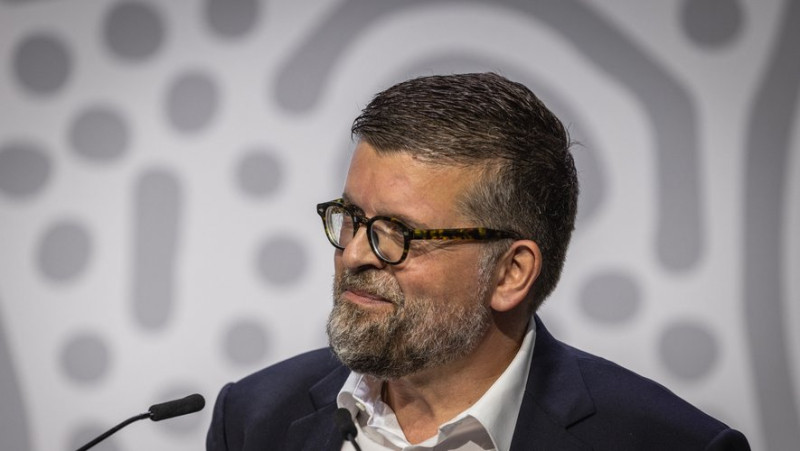“The CCAS are on the front line”: housing crisis, emergency accommodation… Luc Carvounas' expectations on the eve of the Council

Luc Carvounas, président de l'Union nationale des CCAS.
The CCAS of France are holding their Council this Thursday, October 3 in Montpellier. The housing crisis will be at the heart of the discussions. Luc Carvounas, president of the National Union of CCAS (Unccas), explains to Midi Libre his measures for an “effective” housing policy.
The CCAS are holding an important National Council in Montpellier, in a context where the social question is at the heart of all issues.
Absolutely. The first announcements of the new government on its social policy are cause for great concern, particularly regarding the fate reserved for the overseas territories. The next draft finance bill provides for a cut of more than 7% in overseas budgets. At a time when we hear about curfews in Martinique, abuses in New Caledonia, health problems in Mayotte, the government is choosing to abandon the most deprived of our compatriots in the overseas territories, with drastic cuts of more than 200 million euros. My fear is that solidarity will be sacrificed on the altar of budgetary rigor, this is simply not acceptable. This is already the case.
In which field precisely ?
In the field of emergency accommodation for example. Some presidents of departmental councils no longer have the means to accommodate families with children. In the tour of France that I have been doing for four years, I do not know of a single president of a CCAS who does not take into account the issue of emergency accommodation, which is nevertheless a sovereign competence of the State. For too many years, we have witnessed a shift of all sovereign subjects towards the communal bloc.
What are you thinking ?
I am thinking of housing, of course, of security, but also of public health. I do not know of a single municipality, left, right, centre, which has not increased the allocation to its CCAS from one year to the next, quite simply because we have more and more new audiences coming through the doors of our establishments, or some of our establishments, retirees, students, and even employees. In this social crisis, the CCAS are on the front line.
“Our subject is not numbers, crosses and columns, but it is human”
Clearly, on this subject, what do you expect from the government ?
I can already tell you that Unccas will ask all the major associations of local elected officials and solidarity associations to sign a letter that will be sent shortly to the Prime Minister to ask him to set up a consensus conference that will bring together public and private sector associative actors, with a simple and precise message: no question of remaining at the mercy of Bercy's drastic cuts and Excel spreadsheets. Our subject is not numbers, crosses and columns, but rather human beings, women and men. We don't have the right to let them down, we have to fight. On the housing issue, the State has abandoned us, yet it is the priority of the French. Not that of the President of the Republic apparently, it is regrettable.
Housing, as you said, is the priority of the French. This is the concern of organizations that observe the emergence of new profiles in emergency accommodation. You will unveil an alarming study this Thursday.
Exactly. We see in this survey carried out by Unccas that the CCAS are naturally obliged to respond to the question of emergency housing. Today, we have 200,000 emergency housing units in France, the vast majority of which are in Ile-de-France. But that's not enough! What is the State doing about the 3,000 children sleeping on the streets ? Nothing! Housing must become a government priority again.
“We are systematically letting this country fall apart by giving priority to small, small-time answers”
Without money, it's complicated…
There is no magic money, but there are bad solutions. You want a concrete example ? Here is one, the Court of Auditors estimated in a recent report that the whim wanted by Gabriel Attal of the implementation of the SNU for 800,000 young people, will cost the country between 3.5 billion and 5 billion euros per year. Do you think it was so necessary ? I would have preferred that this money be used for dependency and for the elderly. Do you think that the abolition of the wealth tax, which causes the State to lose at least 4 billion per year, was a good decision ? Do you think that after the abolition of the housing tax, it is normal to make owners bear the cost of daily public services ? No, no and no!
A question about housing and perhaps your role in rural areas. A study indicates that poverty and precariousness have increased sharply in rural areas. What solutions do you imagine ?
Since 2017, we have been on low-cost public policies, that's enough! We don't have enough doctors, so we allow nurses and pharmacists to do things that only doctors are authorized to do. We don't have enough teachers, we do speed dating by explaining that there will be a teacher in each class, which is false. We don't have enough early childhood staff, we invent a low-cost four-month training course to allow adults to look after babies. We are systematically letting this country fall apart by favouring small, one-off solutions. That's not how to govern a country.
Interview by Olivier Biscaye
I subscribe to read the rest




